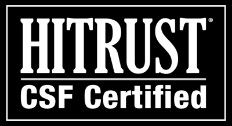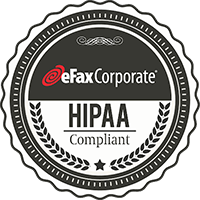In February of this year, the Centers for Medicare & Medicaid Services (CMS) proposed policy changes for sharing clinical data. An important provision of the proposed new rule had the potential to impact unintentionally the delivery of care for many providers who use digital cloud-fax technology (DCFT) to exchange patient information, order medications, and receive test results from labs.
In February of this year, the Centers for Medicare & Medicaid Services (CMS) proposed policy changes for sharing clinical data by releasing a Notice of Proposed Rulemaking (NPRM) informing the healthcare community of a new rule on (among other things) interoperability–the method by which healthcare professionals securely exchange medical documents. As you probably know, CMS is the department that oversees payments to providers through Medicare and falls under the U.S. Health and Human Services (HHS) department.
The proposed rule, CMS-9115-P, supports the CMS MyHealthEData initiative to improve patient access and advance electronic-data exchange and care coordination throughout the healthcare system―and the Interoperability and Patient Access Proposed Rule outlines opportunities to make patient data more useful and transferable through open, secure, standardized, and machine-readable formats while reducing restrictive burdens on healthcare providers. These rules are part of the broader vision of HHS to achieve, by 2024, 100% adoption of healthcare interoperability. Across the healthcare industry there is already wide acceptance of the goals of interoperability and patient control. In addition to HHS and CMS, other federal agencies, like the Office of the National Coordinator for Health IT, have followed suit.
The potential benefits of EHR interoperability are tremendous for patients and caregivers alike. Greater interoperability would improve efficiency and allow for faster, improved communication between medical practices around the country. It also has the potential to empower patients and improve the quality of care they receive.
Upon close review, our team discovered that an important provision of the proposed new rule had the potential to impact unintentionally the delivery of care for many providers who use digital cloud-fax technology (DCFT) to exchange patient information, order medications, and receive test results from labs. For those unfamiliar with this technology, digital cloud-fax is a secure, paperless, cost effective, and proven way for medical professionals to share documents and records. When professionally installed, it is HIPAA-compliant and falls into the Health Information Management Systems Society’s (HIMSS) category of “foundational interoperability.” Due to its simplicity and universal acceptance within healthcare, DCFT is widely used in every setting; it has a particular importance in communities that struggle to afford sophisticated electronic health-record systems, including rural healthcare organizations and financially challenged urban clinics.
Specifically, one of the provisions of the new rule would update the National Plan and Provider Enumeration System (NPPES). Developed by CMS in compliance with the Health Insurance Portability and Accountability Act of 1996 (HIPAA), the system is designed to assign unique identifiers for healthcare providers and health plans, to enable electronic communication. In essence, the NPPES directory serves as the equivalent of a phone book for exchanging clinical documents between healthcare professionals.
J2 discovered that, as written, the new policy from CMS does not include a provision to list the digital number of a DCFT user. The implication is that in this national directory, it would not be possible to find a provider’s cloud-fax address, essentially leaving it out of the directory. If that were the case, those hospitals, labs, and clinics that depend on DCFT to communicate important medical information would be unlisted, severing a key communication lifeline that those facilities–and their patients–depend on.
While the healthcare community continues to focus on reaching full participation in secure electronic interoperability, the current reality is that the use of traditional fax, along with network-based fax servers, still dwarfs the use of direct messaging as the tool of choice for document transfer between healthcare entities. Recent estimates point to the annual exchange of roughly 9 billion healthcare-related faxes in the U.S. alone, contrasted with between 200-300 million direct messages. In order to retire this inefficient way of communication, many providers are moving to a fully paperless DCFT environment, a move consistent with the CMS drive to interoperability.
With that in mind, including digital cloud-fax numbers as a valid NPPES address is essential. Omitting digital cloud-fax technology from the new proposed rule would have a negative policy impact, because it would:
- Disadvantage providers and patients who depend upon DCFT.
- Inhibit the secure exchange of clinical documents.
- Disproportionately impact rural and underserved urban communities that rely on low cost methods to share health data.
Because of Consensus’s market leadership position in the DCFT industry with the eFax brand, we understood the importance of pointing out to the administrators at CMS this unintended impact on our customers’ fax technology. The Consensus executive team immediately engaged our Government Affairs resources to assist in communicating with CMS about this issue. As a global company with strong position in the industries that J2 serves, we brought resources to bear on matters of public policy and regulations impacting our customers.
On June 10th of this year, J2’s President and Chief Financial Officer, Scott Turicchi, and the General Manager of Cloud Fax, John Nebergall, travelled to Washington D.C. to meet with federal regulators. Legislative advocates retained by J2 to assist in governmental affairs also joined the executives. Together, they held a meeting with officials from CMS and ten different members of Congress (and/or their congressional staffs). These discussions included three members of the powerful physician’s caucus ―congressional leaders who are at the vanguard of shaping healthcare legislation.
It was an honor for President Turicchi and Senior Vice President Nebergall to appear in Washington as champions of cloud-fax technology and as advocates for the hundreds of thousands of clinical professionals who rely on DCFT. Together with the lobbying team, they conveyed their concerns to CMS officials and explained the significance of cloud-fax technology in the drive toward interoperability.
Turicchi and Nebergall were encouraged that initial feedback from CMS indicates an openness to discussing the issue further, and the administrators agreed to work together with our industry to understand the technology’s important position within interoperability. The dialogue with CMS officials continues, and the fax leadership team will be back to Washington D.C. this summer for more talks to educate officials about the value of digital cloud-fax technology in this important push for interoperability.
Stay tuned.









